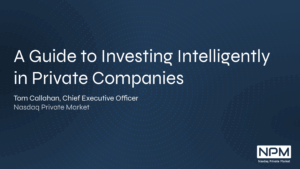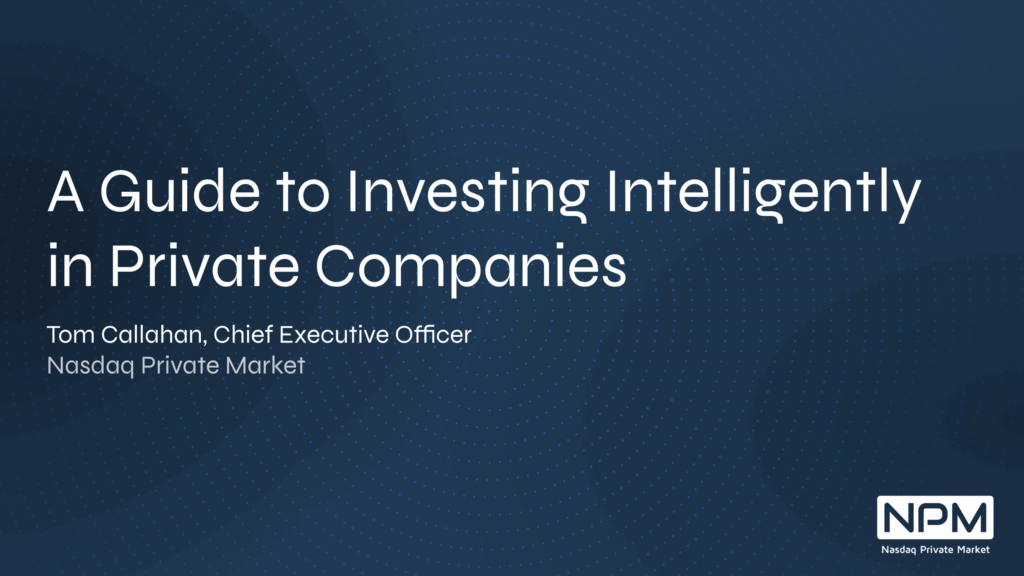

Trading & Investing in Private Company Shares
Private company shares don’t trade like public stock—but they can still be bought, sold, and invested in. Get the basics on the secondary market, transfer restrictions, and fund vehicles that open access to private investments.


All (7)

Private Markets, Public Hype
In recent weeks, a flurry of announcements from various platforms have promised to unlock the doors of the world’s top private companies to investments from retail investors. With many of the most innovative and fastest-growing companies staying private longer, these new offerings are often wrapped in the noble-sounding mission of “democratizing access to the private...
Understanding the Bid-Ask Spread: How Buyers and Sellers Match on Price
The bid-ask spread is a fundamental concept in financial markets that plays a crucial role in trading dynamics. The spread represents the difference between the highest price a buyer is willing to pay (bid) and the lowest price a seller is willing to accept (ask) for a security. Understanding the bid-ask spread has an impact...
Selling Your Private Stock: Understanding the Essentials
The complexities of how to sell private company shares can often feel like a maze for shareholders, from understanding your eligibility to sell stock to navigating the secondary market for selling private company stock, this article explores the process and asset class. Unlocking liquidity through private secondary market transactions can be important for a shareholder’s...
Are You Eligible to Sell Private Company Stock?
Selling private company shares involves navigating a range of counterparties, market complexities, and trading requirements. This article explores eligibility requirements for selling private company stock, including vesting and company policies, to help potential sellers make informed trading decisions. By leveraging insights from Nasdaq Private Market, shareholders can help to ensure their transactions are smooth and...










